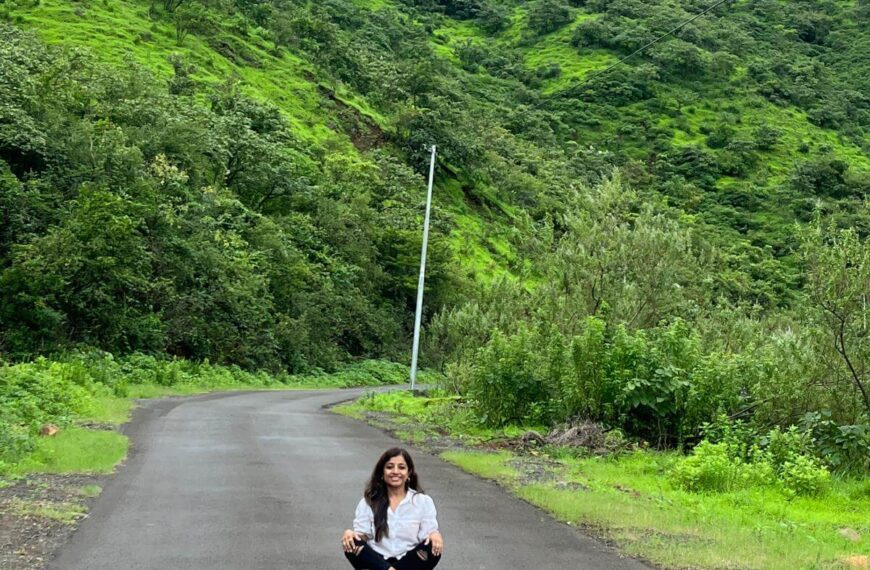The columnist and his young wife were next woken up at Kanyakumari, which was completely deserted and pitch dark, at about two in the morning, and the bus went off, as did the passengers who alighted there. We two were left quite literally in the dark, lost souls in what appeared to be a ghost town, recounts Soumya, telling us of a bus journey long ago, in the weekly column. A Different Truths exclusive.
Years ago, my wife and I, unencumbered and the impoverished young couple then had decided to backpack across South India. I had backpacked around North India earlier in my student days, mostly hitching rides or travelling ticketless. My wife too joined me in these adventures post marriage, but by more conventional and legal means of travel, although the most economical we could find. However, these were mostly restricted to the states nearer Delhi.
What we had not bargained for was the complete breakdown of communications, as Hindi was a dirty word in the south then, and English was limited only to the city of Madras, as it was then called.
 We took an overnight bus from Chennai to Madurai after some difficulty, but once there, we were completely at sea. Managing with sign language, we took a rickshaw that took us around the temple city. We also had the most incredible and delicious breakfast of idlis, vadas, and filter coffee for three, including our guide cum rickshaw man, for a princely sum of rupees two. That night we left for the nearby hill station of Kodaikanal, the bus tickets having been organised by our incomprehensible guide.
We took an overnight bus from Chennai to Madurai after some difficulty, but once there, we were completely at sea. Managing with sign language, we took a rickshaw that took us around the temple city. We also had the most incredible and delicious breakfast of idlis, vadas, and filter coffee for three, including our guide cum rickshaw man, for a princely sum of rupees two. That night we left for the nearby hill station of Kodaikanal, the bus tickets having been organised by our incomprehensible guide.
Our adventures in Kodai would be another story.
On return to Madurai, we tried to get a night bus to Kanyakumari, our next stop. A gentleman at the bus terminus spoke Hindi, and kindly procured some tickets for us and put us on a waiting bus. We thanked the Good Samaritan and dozed off. We were woken by a clamour and found the conductor shouting something in Tamil, and the bus stationary in the middle of nowhere in a pitch dark night. On enquiry, an English speaking co-passenger explained that this was a chartered bus from Madras to Kanyakumari, and apparently two extra passengers had got up at Madurai where they had stopped for dinner, and he wouldn’t proceed till he identified them. I clarified that we were those two, and offered our tickets. This produced even more vociferous protests, and our interpreter explained that these were worthless paper, and he wanted us off the bus right there. I appealed that you cannot abandon strangers at midnight amongst paddy fields in nowhere land, and we could get off in the next town, but he wouldn’t budge. I too became belligerent and challenged him to make me get off. The impasse was resolved by the friendly interpreter who made a deal that we pay the conductor some money and get off at Kanyakumari, which was the next town. My screaming in English seemed to calm the conductor, and after some hard bargaining in sign language, cash changed hands, and we started again. I mentally abused the Good Samaritan of Madurai in five languages.
We were next woken up at Kanyakumari, which was completely deserted and pitch dark, at about two in  the morning, and the bus went off, as did the passengers who alighted there. We two were left quite literally in the dark, lost souls in what appeared to be a ghost town.
the morning, and the bus went off, as did the passengers who alighted there. We two were left quite literally in the dark, lost souls in what appeared to be a ghost town.
Hoisting our rucksacks, we stumbled along the empty road, the roar of waves telling us that we were on the beach road, where the Tamilnadu tourism guesthouse was, and we had booked a room over the phone from their counterpart in Kodaikanal, and been reassured by a prompt “No problem” from the booking clerk.
I actually bumped into a sign that said Tamilnadu tourism in English, a situation I thought happened only in slapstick comedies, but it was our beacon of hope.
The building it pointed to was in complete darkness, and there was a locked gate barring our entry. Being persuaded by the good lady not to try scaling the walls, our luck being what it was, to avoid spending the night in lockup, futilely trying to explain that we were bonafide guests, we tried a more conventional approach.
Our shouting had no result, but a guard from a nearby building came out, and we found that he was from the next door Kerala tourism, knew Hindi, and a back entrance to our destination. Guided by this helpful  man, we entered through a service entrance, and started hammering on the firmly locked doors to the reception, proudly bearing a sign, “24 hours check-in”
man, we entered through a service entrance, and started hammering on the firmly locked doors to the reception, proudly bearing a sign, “24 hours check-in”
The awakened manager came out, and to all our queries, wagged his head, saying “No problem” reassuringly, but making no move to check us in.
Taking the help of the helpful guard, we understood that there were no bookings, and the only words in English he knew were “No problem”. However, there were plenty of rooms available, and we had a lovely room with a sea view, and watched the sunrise from our window, as it was dawn by when things had been sorted out.
©Soumya Mukherjee
Photos from the Internet
#Humour #LanguageProblem #Kerala #Chennai #Kanyakumari #Madurai #SouthIndia #TravellingBackpackStyle #TravelIndia #WhyPigsHaveWings #DifferentTruths






 By
By

